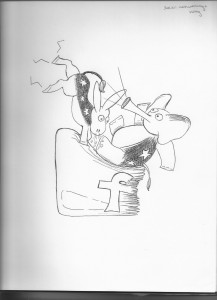
El McCabe
Contributing Writer
If you’ve checked Facebook recently it’s likely that friends, political pages and advertisements have bombarded you with campaign propaganda. With November quickly approaching, candidates and their supporters are trying to impact the election as much as possible and gain the support of the younger generation. I believe social network campaigning is the most politically savvy idea in a long time, and will prove to be a serious determinant in the upcoming election.
Over the last few years, social networks have revolutionized the way people interact, speak and, most importantly, express their views. Since the dawn of Friendster and other social networking websites, teenagers have learned to connect with the outside world in an extremely different form than all prior generations. Kids of all ages can access news from the Internet and absorb the commercials/propaganda posted by their friends on Facebook, Twitter and Tumblr. Due to the fact that kids and young adults are tremendously impressionable, these social networking posts have huge potential to permanently develop and influence the social, economic and political beliefs of voters to come.
This year’s presidential election will be unlike any election America has ever seen. The 2012 presidential election will not only be crucial in deciding the direction of our country, but also in determining the effect that social networking has had on our younger voters. As a first-year, this is my first opportunity to vote along-side eight million young adults ages 18-21 in the presidential election. Those eight million voters are the first generation to be so deeply immersed in social networking and will most likely vote along the lines of the information provided for them online.
Social networking advertisements this past year have been overwhelming in support of Barack Obama. Obama captured 66 percent of the “young vote” from ages 18-29 in 2008, so imagine how much more support he will receive after campaigning heavily online. Obama realizes that his supporters are heavily based in the young liberal population, therefore social networking is the clear answer to maintaining this support. Mitt Romney, on the other hand, has campaigned primarily to older generations and basically avoided social network campaigning all together. I have a strong feeling that his lack of effort in persuading the young vote will cost Romney in the end. Regardless of the winner, it will certainly be an unprecedented election due to social network campaigning, and will most likely change the strategies of presidents to come.



















